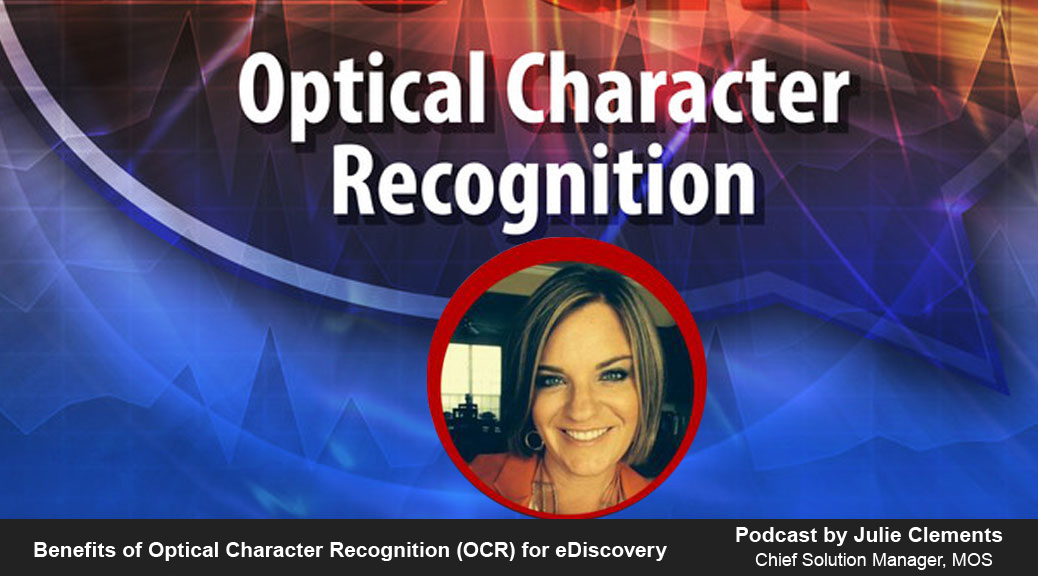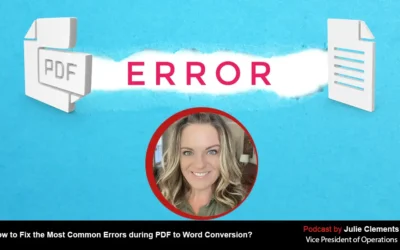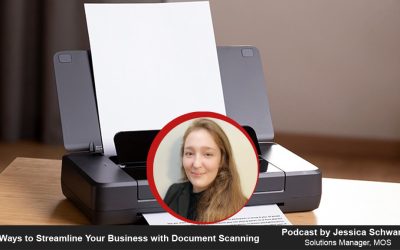In today’s podcast, Julie Clements, one of the Chief Solutions Officers at MOS discusses the OCR benefits for eDiscovery.
Read Transcript
So, a comprehensive e-discovery platform is crucial for litigators to make the discovery process faster and more effective while increasing cost-efficiency. OCR is one such platform. OCR or optical character recognition can be defined as the method of converting images so that they are text searchable. This technology can recognize letters, numbers, and other written characters and allows converting those documents into searchable electronic text. OCR software is highly beneficial for a document scanning service to manage documents faster with minimal errors.
Most legal cases let that be a complex commercial dispute or a small landlord-tenant case, involves eDiscovery. The eDiscovery process allows parties in a legal proceeding to exchange information including interrogation records, depositions and admissions electronically prior to the start of a trial.
OCR conversion software transform the discovery process and enables attorneys, paralegals and other highly-trained employees to focus on the more crucial and critical tasks. With OCR software, scanned documents and native electronic files can be converted into fully text-searchable PDFs.
With OCR for eDiscovery, attorneys can –
Avoid the manual discovery process. Manual discovery is a very time-consuming task for attorneys and litigation support specialists. Moreover, the manual process is prone to issues such as inaccuracies, duplication, misplacing documents, misallocation of resources and excessive time consumption. OCR technology serves as a solution to efficiently perform discovery tasks and it can drastically improve the legal discovery process. Along with converting image-based, non-searchable text into fully searchable PDFs, OCR server can automatically export the files for archiving and storage, and provide time stamps for full-auditability.
You can also find all the details a lot easier. OCR data processing makes all the digital documents completely text searchable. Such fully searchable digital files provide many businesses, especially law firms with diverse benefits such as faster discovery cycles, increased accuracy, improved litigation readiness with ease of access to documents, reduced costs associated with discovery process as well as less chances of missing a document. By using OCR, TIFF and PDF images are also made searchable through the creation of associated searchable text files. With its ready connection to Microsoft and Google enterprise search systems, OCR provides enterprise wide search over the content of image documents.
Litigators can easily find all details in a document including names, dates, and keywords in the documents.
You can also easily edit these documents and redact the documents, including copy/pasting into and out of them. OCR allows a word processing program to edit documents.
Another thing is it saves storage space. Instead of storing discovery documents in filing cabinets, digital files will let law firms free up storage space. With scanning and conversion, OCR helps to save physical storage space in the office and use it for more productive purposes. Data automation allows all files to be easily accessible and users can also easily backup digital data in the cloud.
OCR resolves several problems with image- and paper-based discovery. However, OCR need not be 100% accurate. This software may not work well on faded or damaged documents. Document scanning companies use OCR along with the services of skilled editors to assist legal entities with eDiscovery and other legal processing solutions.
To read further about our blog on the benefits of OCR in the legal industry, go to our website at https://www.managedoutsource.com/.
Thank You!




